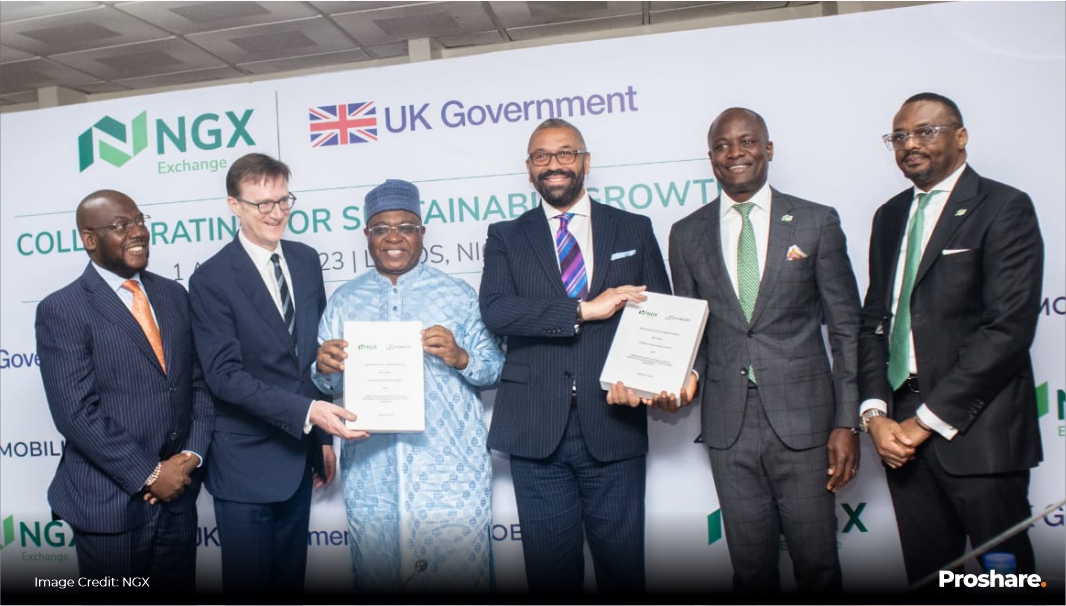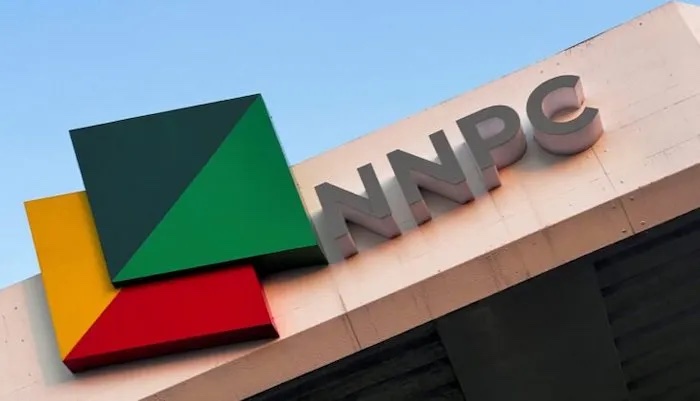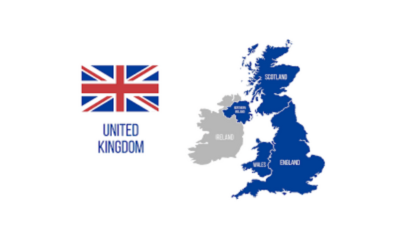Business
UK Underscores Commitment To Nigeria’s Capt Market With MOBILIST

The UK Government is of the belief that Nigeria will benefit from the further development of its capital market, which she is keen to support through Mobilising Institutional Capital Through Listed Product Structures (MOBILIST) programme.
It asserts that Nigeria’s capital market can help contribute to the delivery of the country’s economic goals, including the ambition to transition to clean energy solutions, but needs around USD10 billion in financing per year to meet the Sustainable Development Goals (SDGs) by 2030.
These came to the fore at two MOBILIST events hosted by the Nigerian Exchange Limited (NGX) and the British Deputy High Commission (BDHC) in Lagos on Tuesday, the UK underlined its commitment to work with Nigeria to meet these goals.
The events brought together stakeholders from across the finance and capital market community, including representatives of the Securities and Exchange Commission (SEC) and pension fund industry, to discuss opportunities to solve some of the principal barriers to increasing investment in the SDGs via public markets.
This week’s events come after former UK Foreign Secretary James Cleverly announced a partnership between MOBILIST and the NGX to catalyse greater investment in the SDGs via products listed on the exchange. Cleverly made the announcement in August last year during a visit to Nigeria and the NGX trading floor.
MOBILIST offers equity capital as well as technical assistance to facilitate the listing of pioneering products that support the delivery of the SDGs.
It also provides policy and research support to enhance the environment for issuers, investors, and intermediaries.
According to the Organisation for Economic Co-operation and Development (OECD), Africa needs to invest an additional USD 194 billion per year to meet the SDGs by 2030. Closing this financing gap cannot be achieved without mobilising private investment and enhanced collaboration among capital market actors, governmental institutions, and development finance institutions.
British Deputy High Commissioner Jonny Baxter, said,“The UK government is committed to supporting Nigeria in the continued development of its capital market to help deliver the country’s economic goals, including its ambitions to transition to clean energy solutions.
“A liquid and well-regulated capital market benefits the entire economy by enabling companies to raise capital to fund their expansion, which in turn helps deliver crucial development, job opportunities and improved incomes.
“MOBILIST’s focus on stimulating the creation of innovative listed products can make a unique and impactful contribution to achieving these objectives.”
Chairman, NGX, Ahonsi, Unuigbe, highlighted the need for addressing barriers hindering public listings through collaborative discussions.
In his words, “The discussions we have today are crucial as we address barriers hindering public listings and explore actionable solutions. By overcoming these obstacles, we can unlock the full potential of our capital market, enabling more businesses to access the funding they need to grow and thrive. Some of these obstacles are significant such as regulatory challenges, high listing costs, and market volatility.
“An enhanced and efficient listing process will democratise access to capital, nurturing a vibrant entrepreneurial ecosystem, particularly businesses dedicated to the achievement of Sustainable Development Goals (SDGs), can flourish.”
MOBILIST Programme Lead at the FCDO, Ross Ferguson, said,“MOBILIST is the expression of the UK’s conviction that public markets have a leading role to play in financing sustainable development by mobilising private capital to flow where it is needed most – to firms tackling development challenges and the climate transition.
“We are committed to deepening our relationships in the Nigerian market as we seek to identify businesses and SDG-aligned assets that need our support.”
While delivering the welcome address, the Ag CEO of NGX, Jude Chiemeka, emphasized the impact of the partnership with MOBILIST.
He stated, “Our partnership with MOBILIST is geared towards advancing market efficiency, sustainability reporting, and integrating Environmental, Social, and Governance (ESG) principles. This event represents a significant milestone in our ongoing efforts to enhance the performance and deepening of Nigeria’s capital market by promoting sustainable capital flows and enhancing listing diversity.
The discussions from today are poised to yield actionable insights on how we can collectively catalyse economic growth through the capital market. By harnessing the potential of our capital market, we can unlock new opportunities for funding businesses, fostering entrepreneurship, and ultimately driving sustainable development across Nigeria”.
Business
Trade Tensions Hit Nokia As Q1 Ends In €68M Loss
Nokia has reported a net loss of €68 million for the first quarter of 2025, a sharp decline from the €438 million profit recorded during the same period last year.
The Finnish telecoms equipment maker attributed the downturn to global trade disruptions and recently imposed tariffs by the United States.
The company’s net sales dropped slightly to €4.4 billion, down by one percent year-on-year.
READ ALSO: Trade War: China Strikes Back Wth 125% Tariffs On U.S. Goods
Tariff-related challenges were highlighted by Nokia’s President and CEO, Justin Hotard, who acknowledged the broader economic pressures affecting the industry.
“We are not immune to the rapidly evolving global trade landscape,” Hotard stated. “However, based on early customer feedback, I believe our markets should prove to be relatively resilient.”
He also noted the potential short-term financial impact, saying, “Based on what we see today, we currently expect a EUR 20 to 30 million impact on our comparable operating profit in the second quarter from the current tariffs.”
Earlier this month, U.S. President Donald Trump introduced a 10 percent tariff on global imports, while pausing plans for steeper duties, including a proposed 20 percent levy on products from the European Union.
Despite the quarterly setback, Nokia expressed confidence in its growth prospects.
The company is looking to its Network Infrastructure, Cloud and Network Services, and Mobile Networks divisions to drive sales in the year ahead.
In a sign of continued momentum in the mobile segment, Nokia also announced on Thursday that it had extended its contract with T-Mobile US.
The company said it is continuing “to see positive signs of stabilization” in Mobile Networks.
Business
Marketers In Anguish, As Dangote, NNPC Ltd War Drag Price To N880/litre

The pull of market forces which moved the hands of the Nigerian National Petroleum Company Limited (NNPC Ltd) to reduce the price of Premium Motor Spirit (petrol) to N880 per litre in Lagos and N935 in Abuja appears to be a source of torture to independent markets.
Biztellers reports that the latest price review on Easter Monday saw NNPC retail outlets in Lagos drop from N925 to N880, while those in Abuja adjusted from N950 to N935.
The NNPC Ltd’s price reduction came barely a week after the Dangote Refinery lowered its ex-depot price from N865 to N835 per litre.
ALSO READ: BREAKING: Again, Dangote Cuts Petrol Price To N835 per Litre
In addition, the $20bn refinery also directed its partners like MRS, Heyden, and Ardova to sell a litre of petrol at the rate of N890 instead of N920 in Lagos, N900 in the South West, N910 in the South-South, and N920 in the North East.
Consumers can smile because with the reaction, the NNPC Ltd’s new price in Lagos is N10 lower than what the Dangote Refinery is selling at, which might lead to another reaction, as the price war between the two companies.
Though some NNPC Ltd’s retail outlets were observed selling at the old rate in Lagos, it was gathered that they were given the liberty to exhaust old stock before adjusting to the new prices.
Market sources are of the view that the current price war was ignited by the Federal Government’s implementation of the Naira-for-crude policy.
Business
Gold Prices Hit Historic $3,500 Amid Trump Tariffs, Fed Tensions
Gold soared to a record high of $3,500 an ounce on Tuesday, as mounting fears over a potential U.S. recession and escalating tensions between President Donald Trump and the Federal Reserve drove investors toward the traditional safe-haven asset.
The precious metal briefly touched an all-time high of $3,500.10 an ounce before retreating slightly to trade at $3,467.87.
READ ALSO: JUST IN: Vatican Discloses Cause Of Pope Francis’ Death
The rally marks the latest in a string of record-breaking gains for gold, fueled by a weakening U.S. dollar, sharp declines across global stock markets, and growing concerns over the health of the world economy.
Market sentiment took another hit this week after President Trump ramped up his trade war with China, slapping fresh tariffs on the world’s second-largest economy and intensifying fears of prolonged economic disruption.
Gold has surged more than 30 percent since the start of the year as investors seek refuge from mounting market volatility.
“The rally reflects ongoing recession fears in the U.S. economy and heightened political tensions, especially as President Donald Trump continues to attack Federal Reserve Chair Jerome Powell,” said Rania Gule, senior market analyst at trading group XS.com.
Concerns about the Fed’s independence were further stoked Monday, when Trump publicly lashed out at Powell on social media, branding him a “major loser” for not cutting interest rates — a move the president has repeatedly demanded.
The sharp criticism follows Trump’s recent suggestion that he might attempt to remove Powell from his post.

















